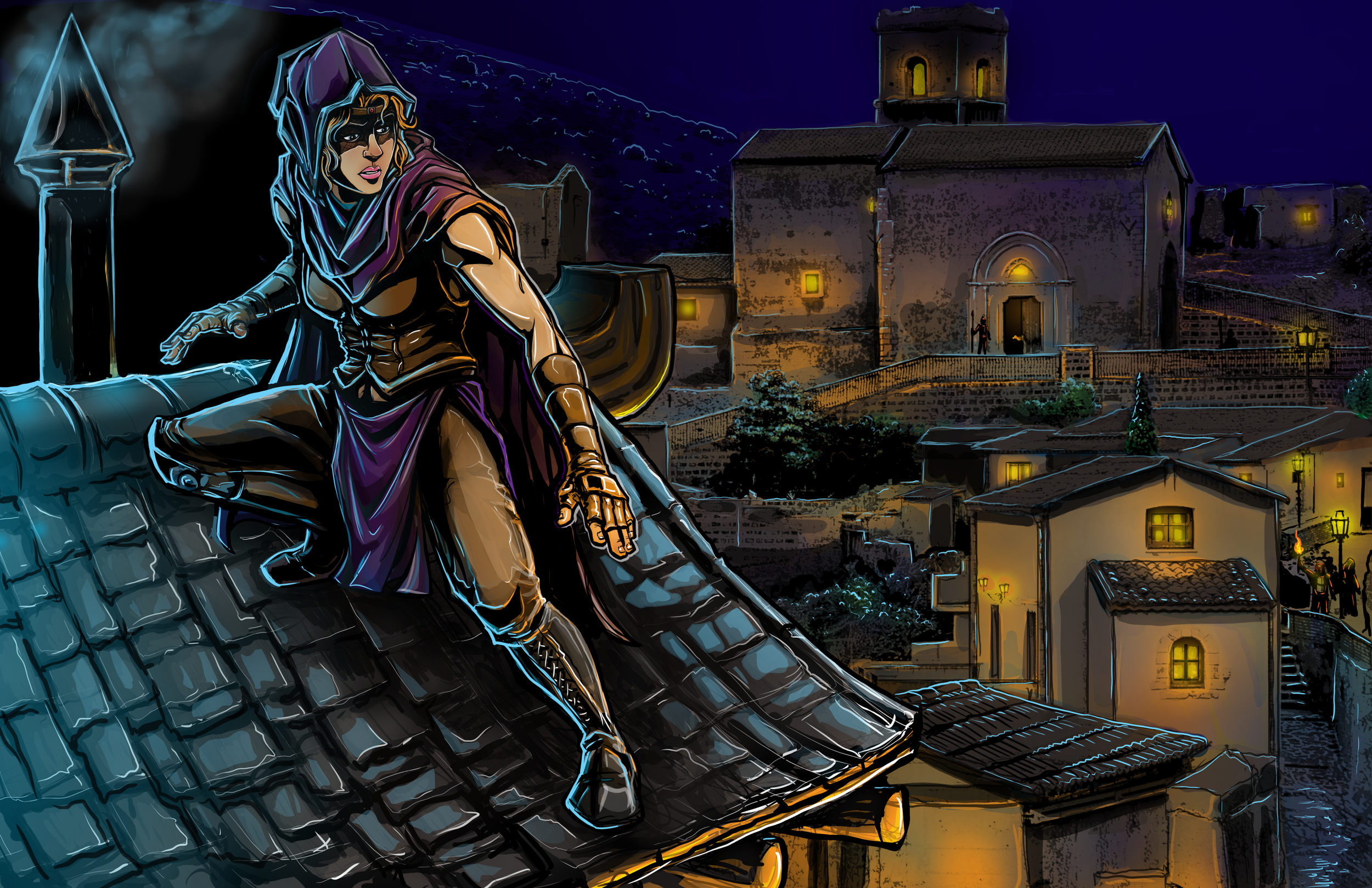Roguish Archetype: Mastermind 5e
Review by Sam West, Twitter:@CrierKobold
The schemer, planner, brains behind the operation: that is the Mastermind. The shadow puppeteer running the show, controlling each and every pawn perfectly, playing a game of chess with other shadowy figures for the very soul of the world. What a fantasy!
In practice, you give the fighter advantage on one attack a round and shoot a shortbow. Woo!
Mastermind Rogue is a cool concept, but it's hard to bring that character type to a game about killing living, hungry chests in a quest for riches. Still, Mastermind brings value to the table (primarily through Master of Tactics), and can be a good enough way to live your supreme plotter fantasy.
See Also: Best Feats for Mastermind Rogue
3rd Level: Master of Intrigue and Master of Tactics
Master of Intrigue is two tool kits, languages, and a gaming set as half the feature (which speaks volumes about the typical value these have at most tables). Subsequently, you also get an Actor-like ability to quickly assimilate into foreign environments, making yourself an adept negotiator and translator in a pinch. This feature is largely a ribbon, but is a robust one, coming with all the toys you could really ask for to sell a learned tactician adept at social navigation.
Master of Tactics gives an ally the help action as a bonus action at a range of 30 feet. The help action grants a creature advantage on its next attack roll. This then becomes the central pillar of what you do in combat- the melee ally charges at somebody. You help them from a nice safe distance and shoot an arrow or bolt at whatever they’re engaged with.
As far as bonus actions go, you’d be hard-pressed to find a resourceless option this solid that rewards teamwork. Rogue is a class that depends most on their allies to enable their features; having a tool to empower your allies back feels great, and leads the whole party to feel like a cohesive team.
9th Level: Insightful Manipulator
Insightful Manipulator is nearly completely worthless. Knowing if something is smarter, wiser, more charismatic, or higher level than you has nearly no value at any table. It just isn’t useful information in social situations or combat. What can be relevant, though, is the little blurb about learning their history. This can be a free-ish Legend Lore like feature you get on anything you spend time staring at. Your mileage will vary DM to DM; if you’re at a table looking to play an Intiruge-based game, this feature can pay off in spades. If you’re kicking in doors and squashing goblins, there is nothing here to get excited about.
13th Level: Misdirection
Where Master of Tactics gives your allies Help, Misdirection lets them help you! Shifting an attack from you to somebody granting you cover works best on the small races (namely halflings), and won’t occur all that often. When it matters, though, it feels so good. The AC 23 paladin isn’t going to feel a thing from that longbow shot. Better yet, the enemy combatant may just get shot in the back from their friend trying to shoot past them. It's a pretty spicy ability that can be a great time to play with but is situational enough that I’m always left wanting more from it than it offers.
17th Level: Soul of Deceit
Soul of Deceit is a non-feature. It just doesn’t do anything in 99.9% of encounters. Most things aren’t trying to read your mind, and being able to lie in a Zone of Truth just isn’t that important. This is a compelling reason to dip out of Mastermind early, as having a non-feature as your 17th level subclass feature isn’t where you want your master manipulator to be. Planting false information is cool, but there needs to be more here to help you feel like you’re scaling with the rest of the table.
All Together
If you want to play the schemer, three levels in Mastermind rogue absolutely help you feel like the Mastermind. Its upper-tier options, while fun and interesting, aren’t particularly powerful. Of all the rogue subclasses, this is the one I want to multiclass the most with bard, sorcerer, or warlock, especially if I have an open bonus action to assist allies with. If you commit to the full subclass, it doesn’t really age that well, with Soul of Deceit being particularly atrocious. Still, the core of it is good enough that you can have a great time with a Mastermind at most tables.
Thank you for visiting!
If you’d like to support this ongoing project, you can do so by buying my books, getting some sweet C&C merch, or joining my Patreon.
The text on this page is Open Game Content, and is licensed for public use under the terms of the Open Game License v1.0a.
‘d20 System’ and the ‘d20 System’ logo are trademarks of Wizards of the Coast, Inc.
and are used according to the terms of the d20 System License version 6.0.
A copy of this License can be found at www.wizards.com/d20.




